On July 26, 2024, JISR 7th batch participants attended the completion ceremony of their Japanese language training at the Morito Institute of Global Higher Education, Hiroshima University. The JISR participants received their certificates and finished their 8 months of Japanese language training with smiles on their faces. Starting in October 2024, the participants will begin their master’s studies at various universities across Japan.
The participants aim to find employment in Japan in the future. The 8 months they have spent struggling to acquire the language skills necessary to live in Japan have not been an easy road. How did they get there since they arrived in Japan?
Six members of the “7th Batch Family”
In the winter of 2023, three participants from Jordan and three from Lebanon arrived in Tokyo. After completing the orientation at JICA headquarters, they came to Hiroshima, and the JISR 7th Batch training officially began. The six participants, who had been spending time together since their arrival in Japan, soon became close friends.
Apart from learning Japanese together in class, helping each other in the unfamiliar environment of Japanese life is essential. It was a challenge to gather all the necessary documents required by the local government office, the banks, etc. They went to convenience stores and learned together how to use the copy machines to make copies of their IDs. Food is also a concern for Muslims. Many of the foods available in Japan contain pork or alcohol. Program staff sometimes took participants to a specialty store that sells halal (Muslim-friendly) food.
Shortly after starting to live in Japan, one participant told us, “We are like a family.” For some of them, it was the first time living away from their families. It must have been a great encouragement to have peers in Japan, all studying hard for the same goal.
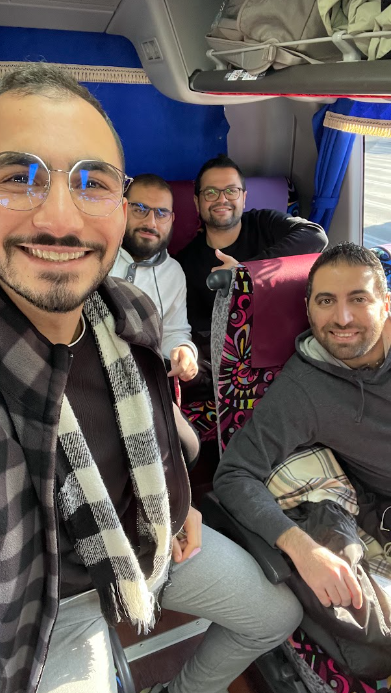
Participants shared many experiences.
Challenges of Learning Japanese
The course that JISR participants take is called the Japanese Intensive Course. They study Japanese intensively from 10:30 a.m. until after 4:00 p.m. every day. Mastering Japanese - a difficult language to learn - in just 8 months is no easy task. There is not much time to spare. Participants also work on homework and self-study when they return home, so they keep studying from morning to night.
Participants often felt overwhelmed by the amount of work and the pace of the course. Sometimes they were left with questions after class. In such cases, it was time for the former JSIR participants to step in. The participants of the 6th batch, who were studying at Hiroshima University, kindly taught them the same content they had studied a year ago.
Even on weekends, most of the time was spent on study, but sometimes it was worthwhile to have a change of scenery. When some participants visited Miyajima, they had many opportunities to actually speak Japanese, and they said that the people they met there complimented them on their use of Japanese. Looking back on the experience, one participant said, “it is still difficult to feel my progress in the classroom, but I felt that I was making progress little by little,” and his motivation certainly seemed to have increased. It is a big step in learning to feel progress not only in the classroom but also in the outside world. At the Hiroshima International Center (HIP), where the 7th batch participants stayed, a variety of events are held. By participating in these external events, they have deepened their understanding of Japan.
In their effort to learn effectively, the participants found their own methods of self-study. Some secured a spot in the library to focus on studying, while others used smartphone apps to memorize how to read difficult kanji. Some participants also took advantage of the free Japanese language classes offered in Higashi-Hiroshima City, called “Nihongo Waiwai,” where they practiced with the help of native Japanese speakers. Over the course of 8 months, the participants moved forward one step at a time, struggling and pausing at their own pace.
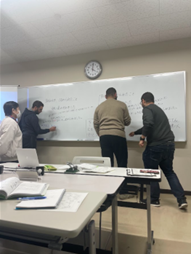
A scene from a Japanese class at Morito Institute of Global Higher Education.
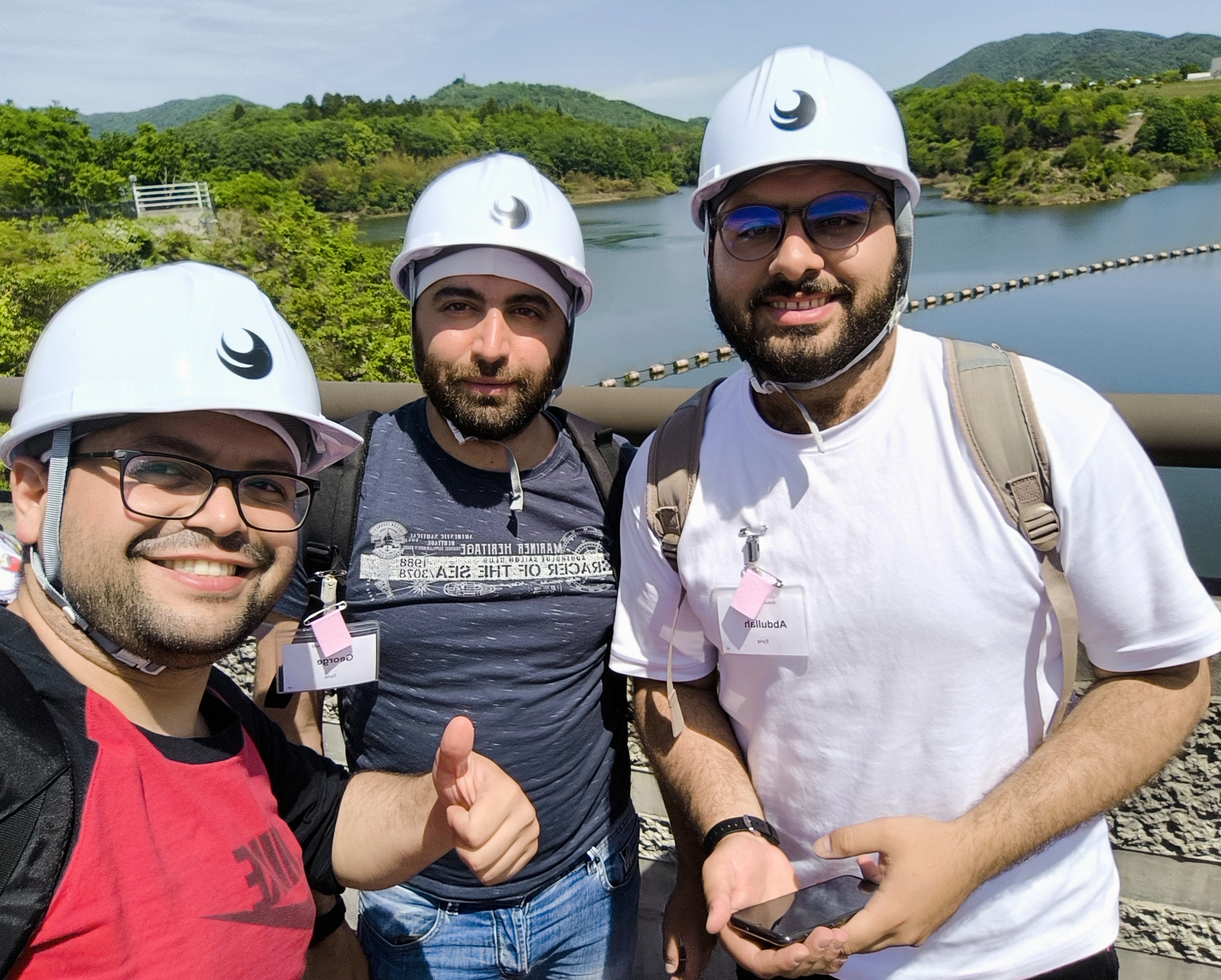
Some visited the Fukutomi Dam as part of an HIC event and learned how dams work.
Now it's time for the final presentation!
Finally, the day of the completion ceremony arrived, and the 7th batch of JISR participants gave their final presentations to showcase their achievements in Japanese language skills. The topics covered a wide range, including cooking, energy, conflicts, Mount Fuji, and Japanese seasons. Each participant had 10 minutes to present using slides prepared and projected on a screen. Everyone made good use of visual tools such as photos and animation to make polished presentations.
The presentation on “Sakura (Cherry Blossom)” delicately expressed the Japanese sensibility embodied in the cherry blossom. The presentations on “Syrian and Japanese Cuisine” and “Mount Fuji and Mount Hermon” were very interesting in their contrast between the two countries. One of the participants, who has been studying at a graduate school as a research fellow since April while taking Japanese language training, gave a clear explanation of his field, “Biomass Power Generation Energy.” Another participant looked back on his life before coming to Japan and summarized his life's journey as "My Journey Beyond the Conflict in Syria.”
After each presentation, there was a 5-minute Q&A session. Since there were no scripts and they had to use all the vocabulary and grammar they had learned to answer the questions on the spot, this could be a tense moment for JISR participants. The principal of the institute asked, “Is there a Syrian dish that has a similar effect to Japanese medicinal herb cooking?” The presenter replied brilliantly, “In Jordan, thyme is famous. Jordanian food is grilled or fried, but (thyme) can be eaten raw.”
The participants finished their presentations confidently, a little nervously, and the teachers gave them a message at the end. There was a friendly atmosphere throughout, with laughter breaking out as they recalled moments from the classroom. There were also emotional moments for the teachers who had supported the participants both in the classroom and in their personal lives. As the teachers shared their memories of each participant, holding back tears and choking up a bit, it was easy to see the days they spent together and the feelings they had for their students. The participants also looked up at the teachers with expressions of gratitude and appreciation.
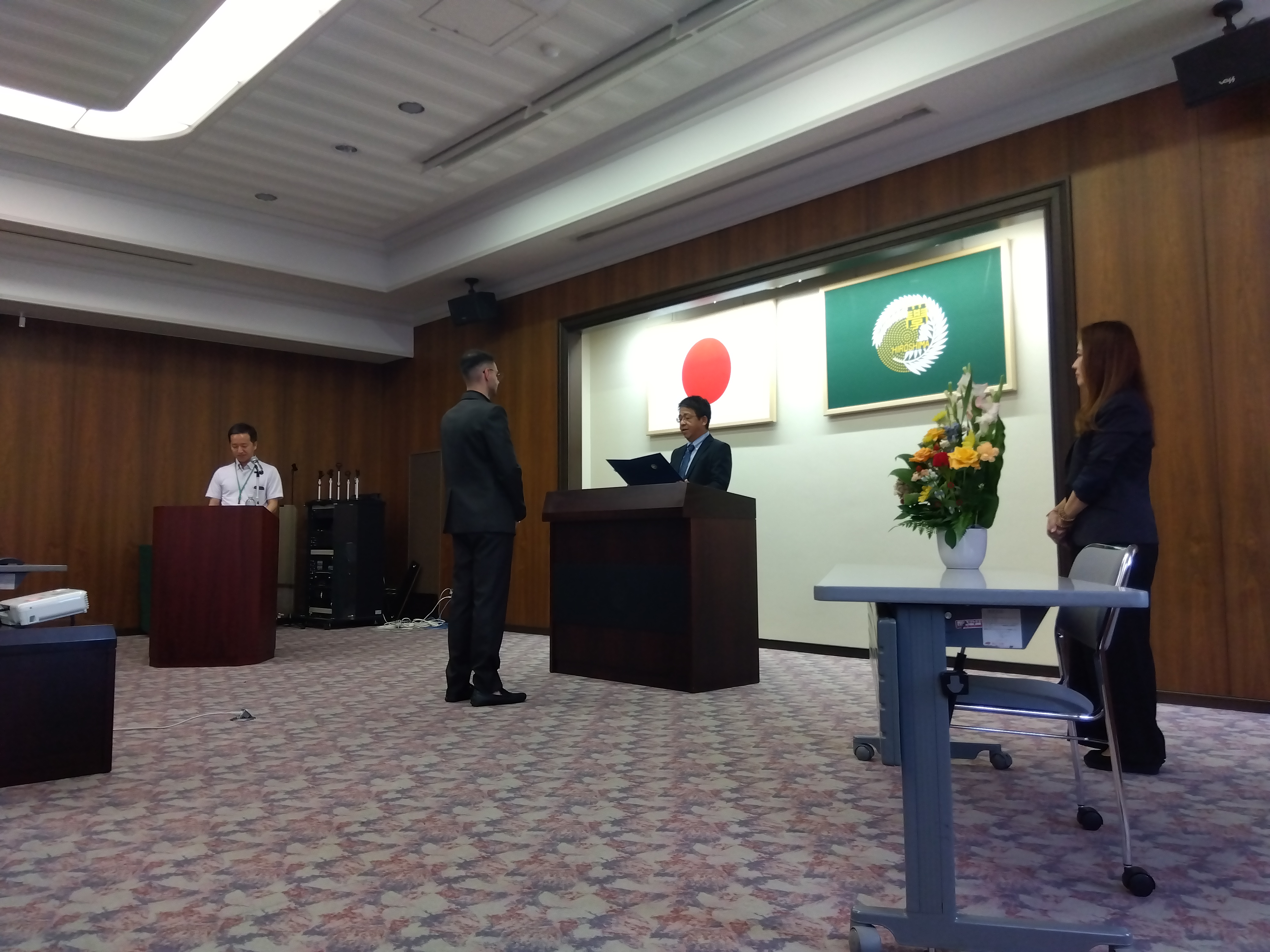
Participants received certificates in front of their teachers and classmates.
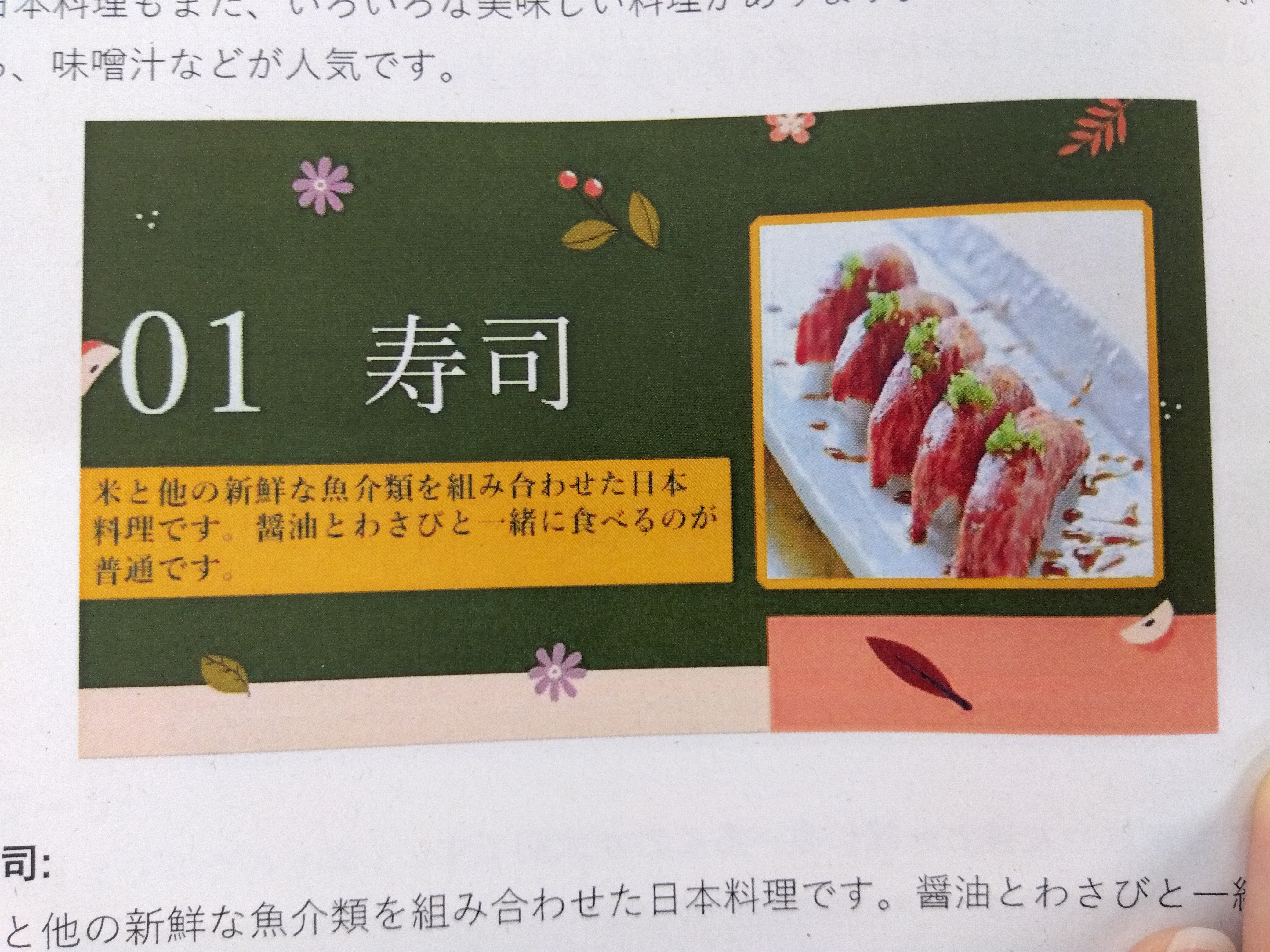
A slide on Japanese cuisine presentation.
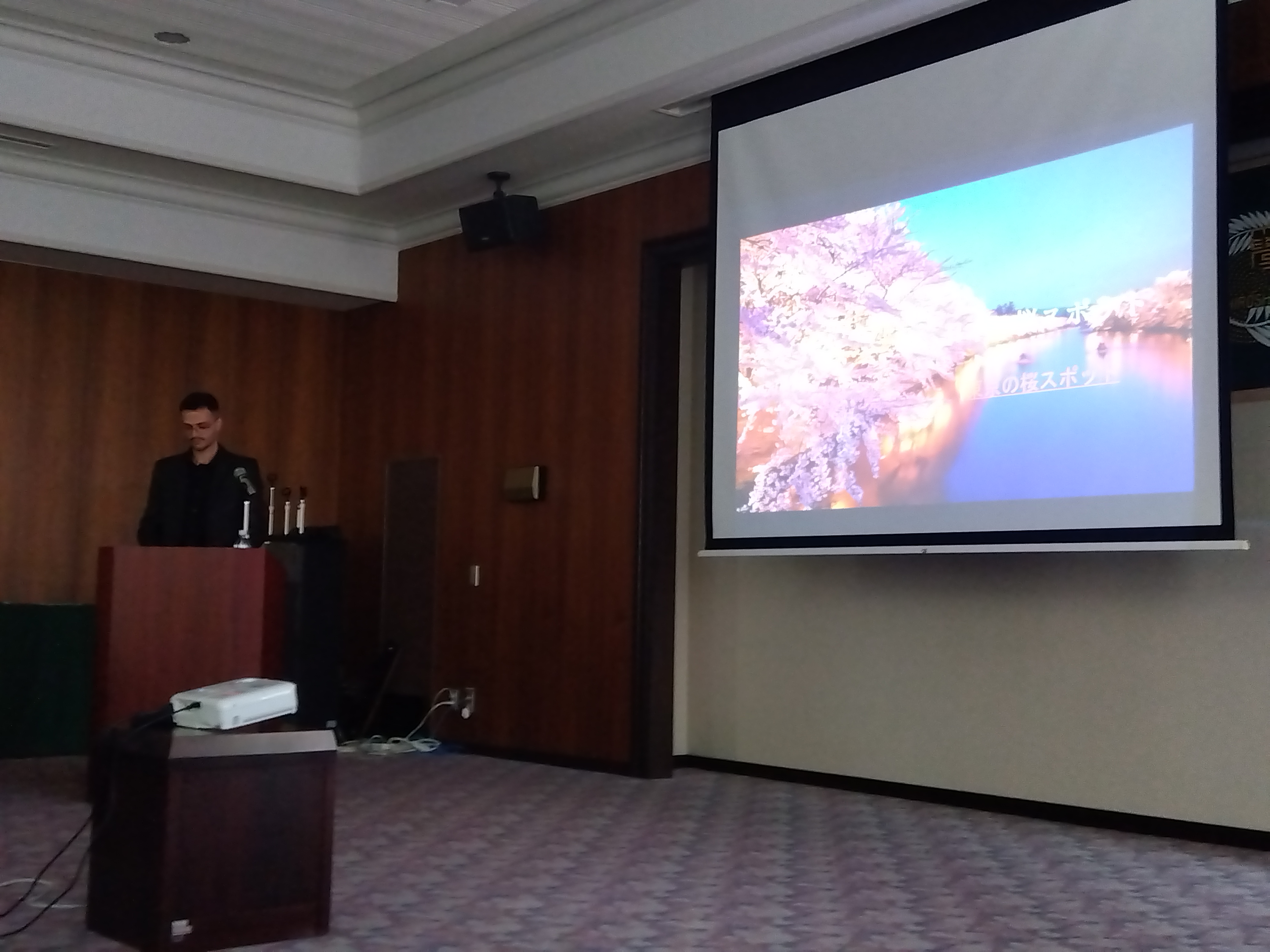
A scene from the presentation. They practiced a lot for this day.
Setting out for a new world
From now on, the participants will travel to different parts of Japan, and in October, they will enroll in graduate schools to obtain master's degrees. This is the real starting point.
“Language creates a new world.” This was the teacher's farewell message to the participants at the ceremony. Having overcome many obstacles in learning Japanese, they will now be able to broaden their circle of friends in their new environment and create their own world in which to shine. They will continue to learn and expand their world by weaving their own stories.
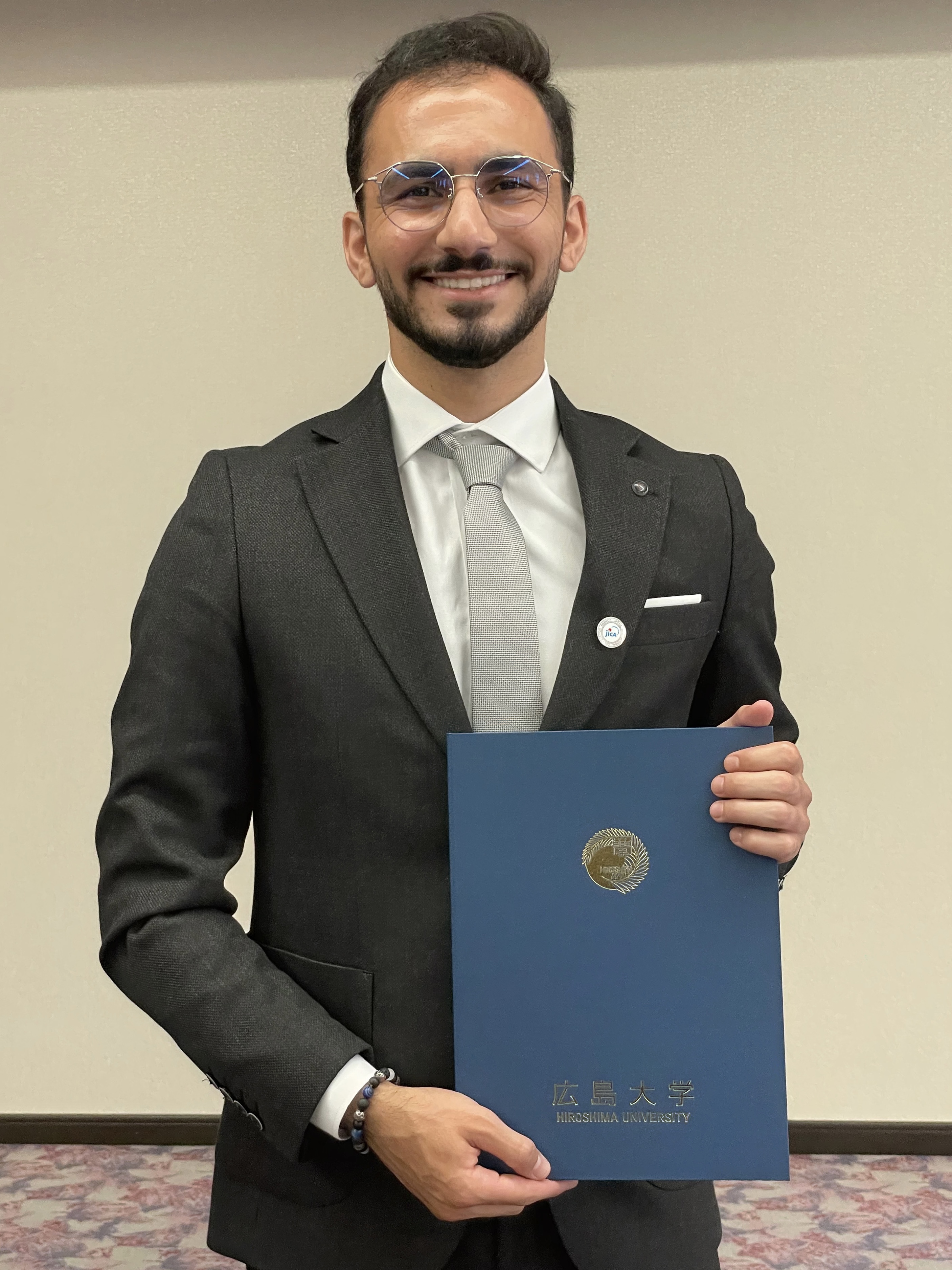
With the certificate in hand, their next challenge begins.




scroll